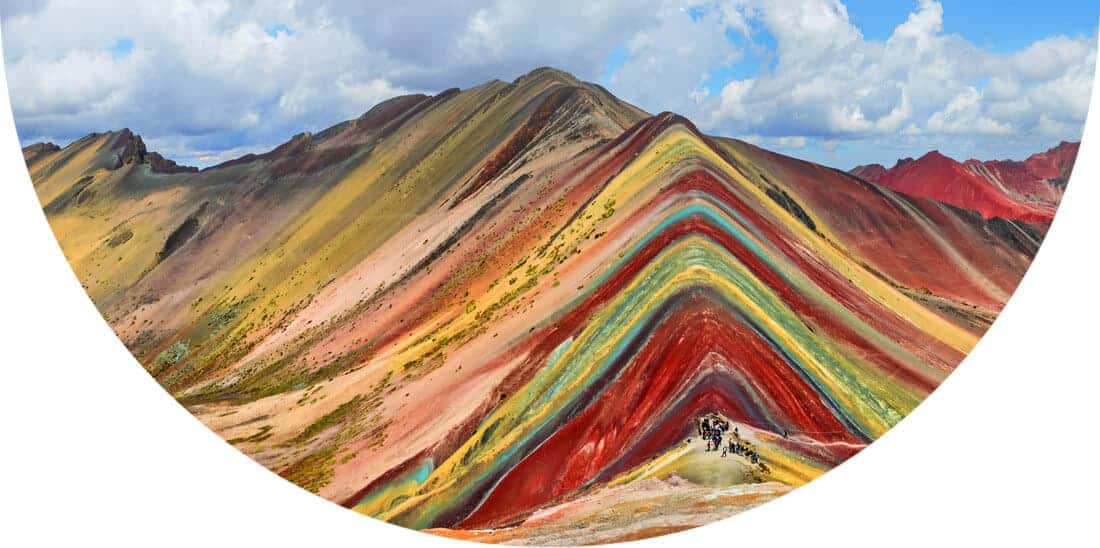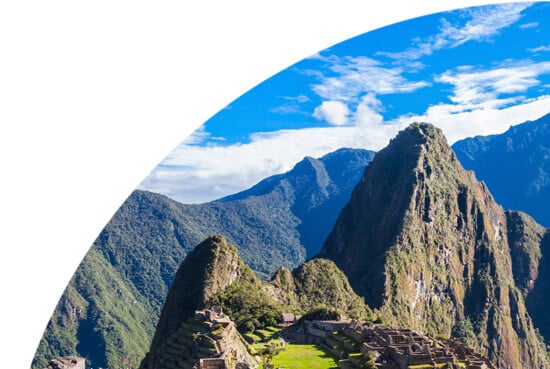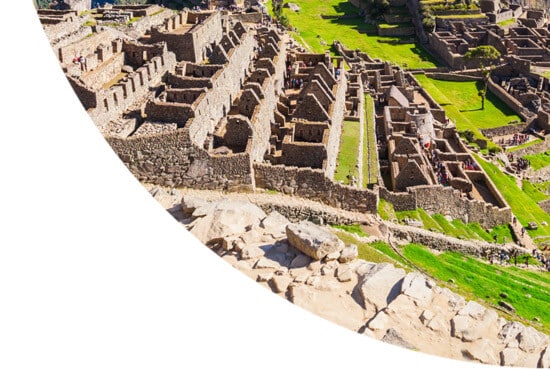West Nile virus (WNV) is spread by mosquitoes in many countries. There are usually no symptoms, although some people develop mild flu-like symptoms, nausea and skin rash. The virus is not contagious and should get better without any treatment.


Travel Vaccinations for Peru
Recommended Vaccines for Peru
The level of protection needed depends on your medical history and travel itinerary. Book now to get a personalised recommendation from our specialist travel nurses. The consultation costs £20 plus any vaccines you decide to take.
Flexible appointments with no upfront payment
Book Now
Destination Information for Peru
Peru, in South America, is a stunning country of rich Amazon rainforest and home to historical landmark and one of the Seven Wonders of the World, Machu Picchu, the ancient Incan city which sits high up in the mountains of the Andes. Machu Picchu is the most visited site in Peru, and, indeed, the whole of South America, but there’s a lot more to Peru than this one highlight.
Mountain ranges and jungles, quiet colonial towns and villages and staggering modern cities, beautiful beaches and vast deserts, the contrasts are incredible. Tourists can try their hand at surfing, catch a tan on the beach, trek the iconic Inca Trail and take part in a variety of adrenaline sports including kayaking, horseriding, paragliding and much more. If you fancy a change of pace, you can opt to stroll around cobbled streets, sample some of the delicious traditional foods and shop for gifts and souvenirs at street markets.
Famously, ‘deepest, darkest Peru’ is also the origin of the much-loved character, Paddington Bear.
Overall, Peru is a complex country with many facets: fabulous wildlife, scenery, ancient civilisations and ruins and a colourful carnival culture; when visiting Peru you can also take in the noise and bustle of the chaotic capital, Lima.
Tourists in Peru can take their pick from accommodation ranging from basic hostels and guesthouses to 5 star hotels and resorts catering for package holidays. While December to February is high season for beaches and the coast, the Inca Trail is closed for rainy season in the highlands – check your specific destination and itinerary carefully to find the best time for your trip.
With so much to see in a country with such rich history, ensure your trip isn’t interrupted through illness by receiving the correct travel vaccinations. The recommended vaccines include Hepatitis A, Typhoid, and Tetanus, Diphtheria and Polio. Yellow Fever Vaccination is recommended for those aged 9 months of age and older travelling to parts of Peru.
In addition, vaccines such as rabies, and hepatitis B may pose a risk so visit one of our travel clinics for a consultation to find out exactly what you need.
There is a point of elevation in this country higher than 2,500 metres. Some example places of interest: Machu Picchu 2,430m, Cusco 3,399m; Inca trail max ~4,200m; Pisac 2,972m; Cerro de Pasco 4,330m; La Rinconada 5,100m; Puno 3,827m so please discuss altitude sickness at your consultation too.
Infections and Outbreaks frequently change from country to country and by attending our clinics you will be given the most up to date clinical and safety advice from our team of specialists. Our advice to you often includes aspects such as:
Additional Health Risks Information for Peru
When visiting Peru, it’s imperative to take sensible precautions regarding personal safety and security, as street crime including theft and pickpocketing is common. These precautions include avoiding travelling alone at night, carrying valuables on your person and keeping a close watch on personal belongings in busy areas.
If you take a taxi, be sure to book in advance through a reputable firm. And, for those travelling by bus, be aware that road and vehicle maintenance, as well as driving standards in Peru, are not the same as in the UK.
To keep yourself healthy while in Peru, it’s important to prevent food poisoning and other hygiene-related bugs and avoid insect bites as much as possible. The weather can be hot and sunny, so stay hydrated by drinking bottled water, and use appropriate sun protection. Altitude sickness is also a risk for those considering trekking, climbing or taking part in other sports in the mountains. Make sure you know the signs and symptoms; also, ensure you have a means of seeking help if you or someone in your party begins to suffer.
Medical treatment is available in the main cities and towns but can be expensive. Ensure that you have sufficient travel insurance in place for all planned activities, which includes repatriation if necessary. UK health authorities have classified Peru as having a risk of Zika virus transmission. Take suitable precautions to avoid being bitten by mosquitos for the duration of your stay, and if you are pregnant or planning to become pregnant, you may want to reconsider your trip to Peru.



